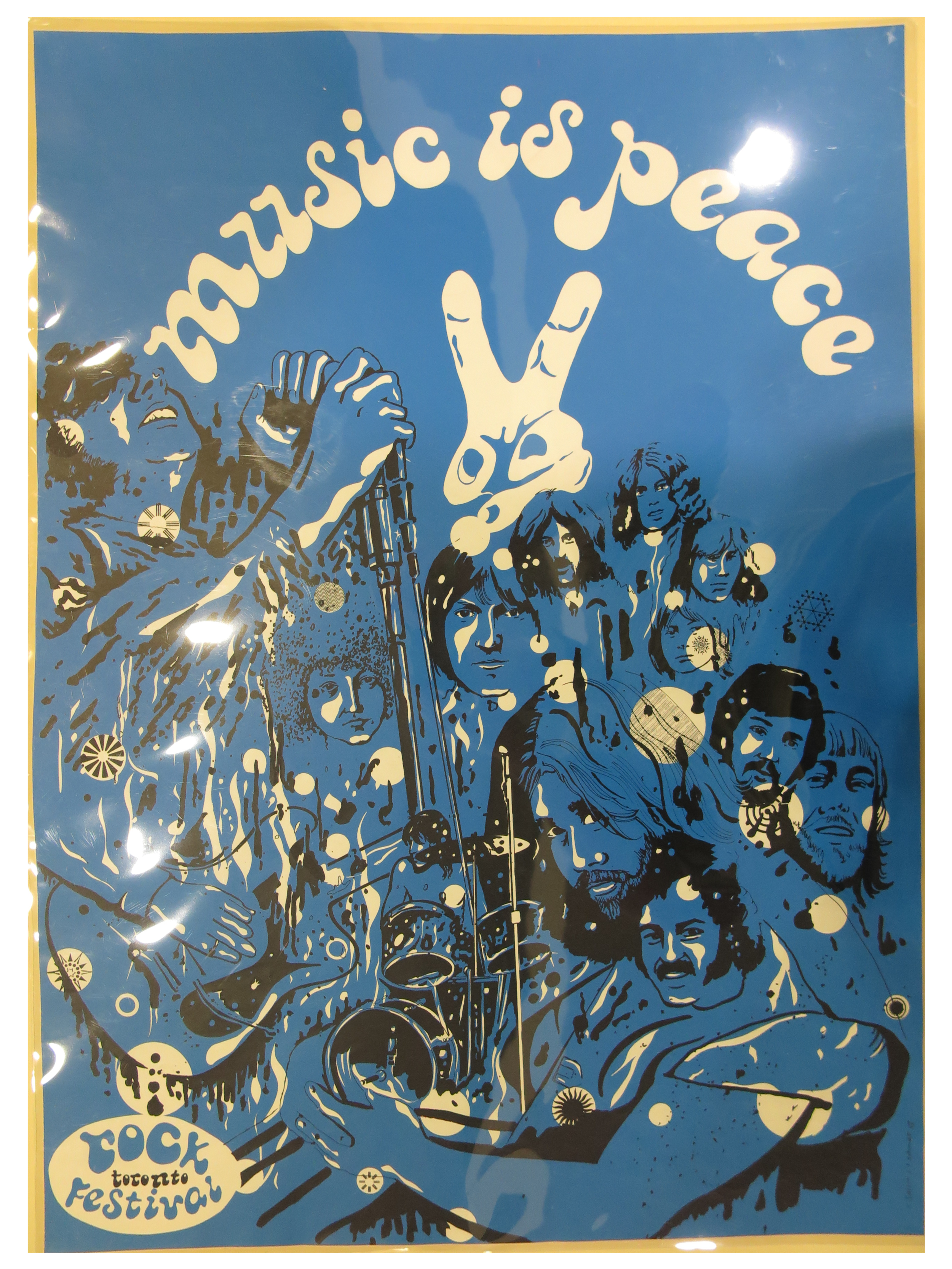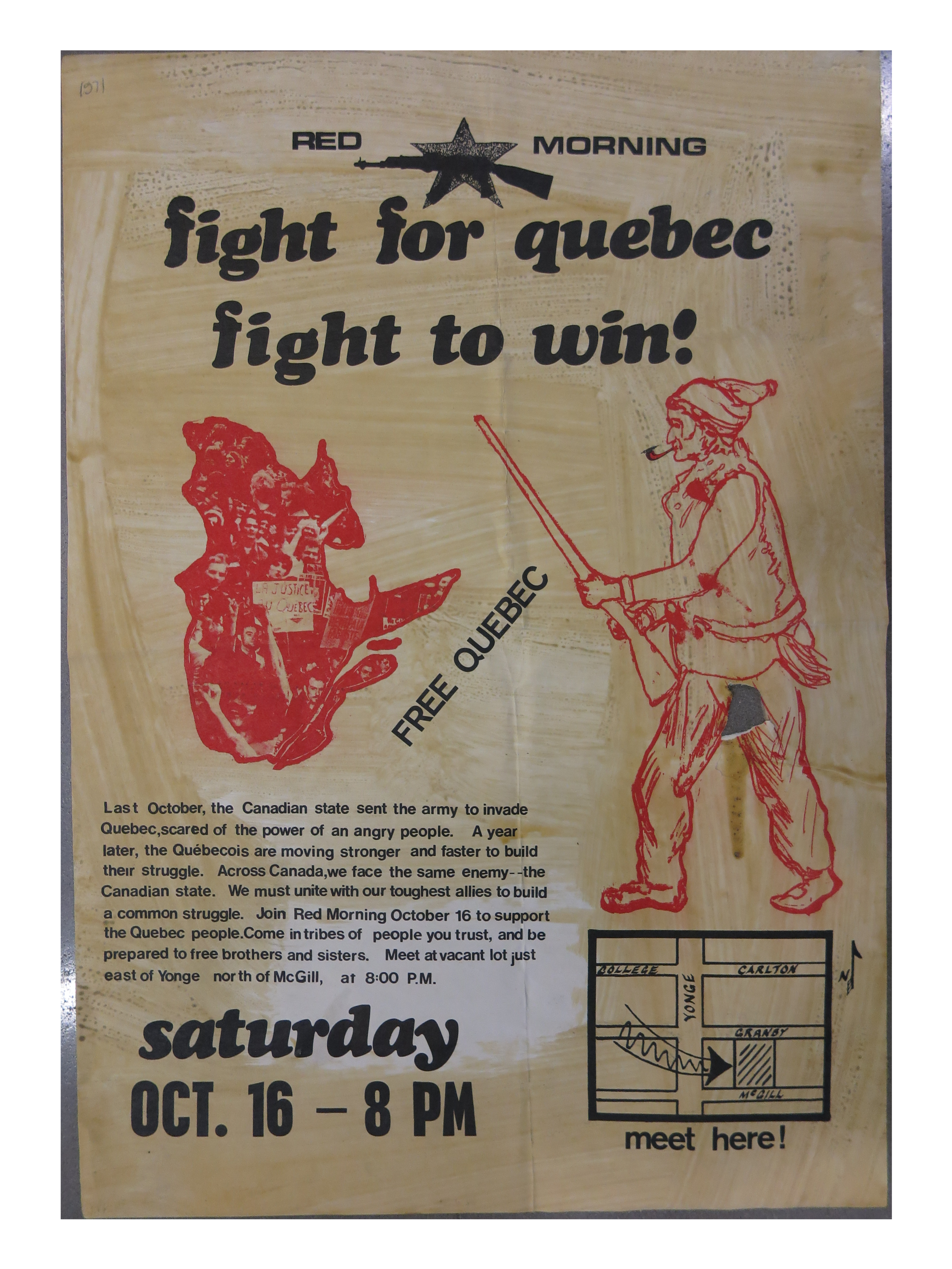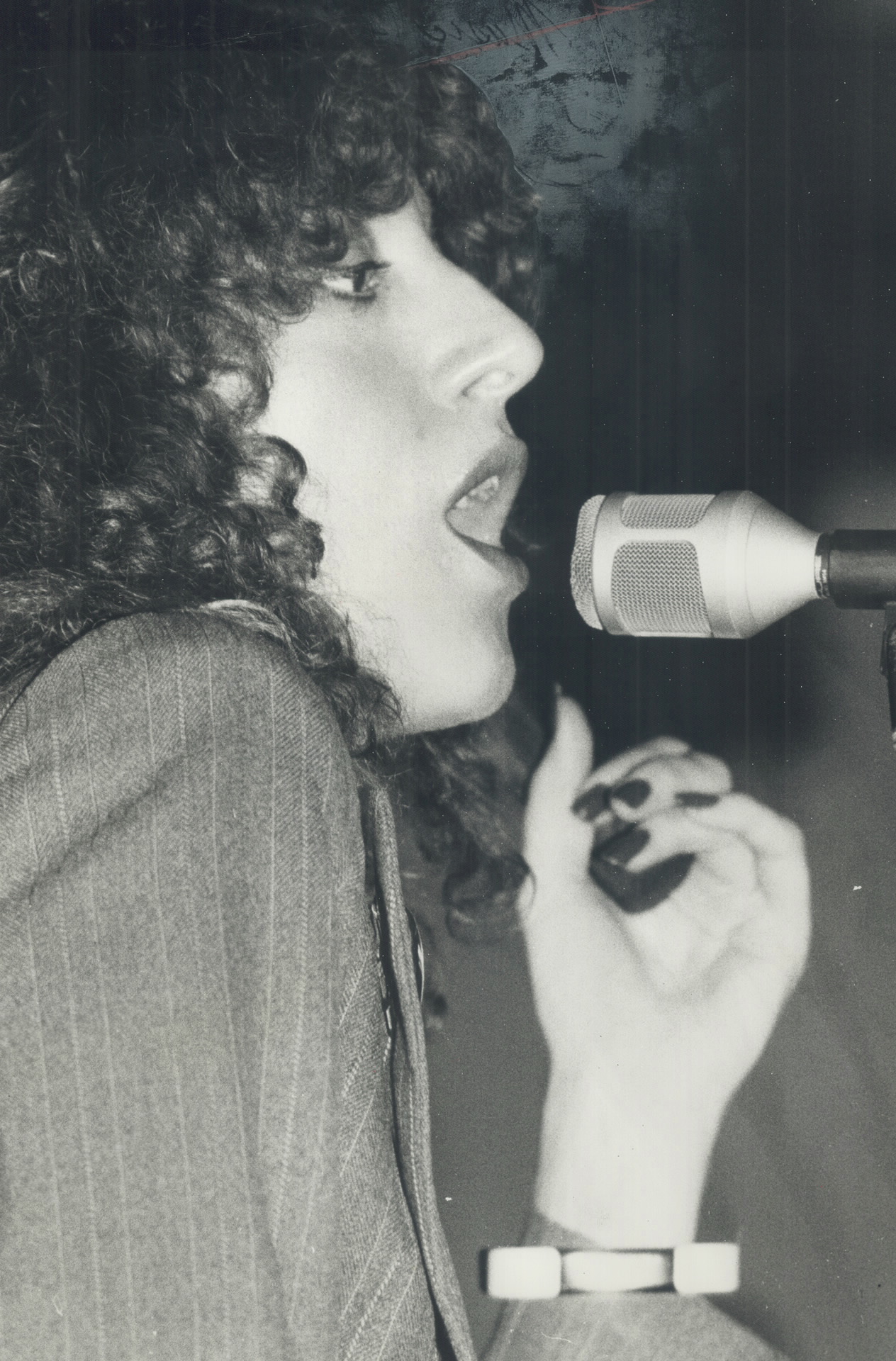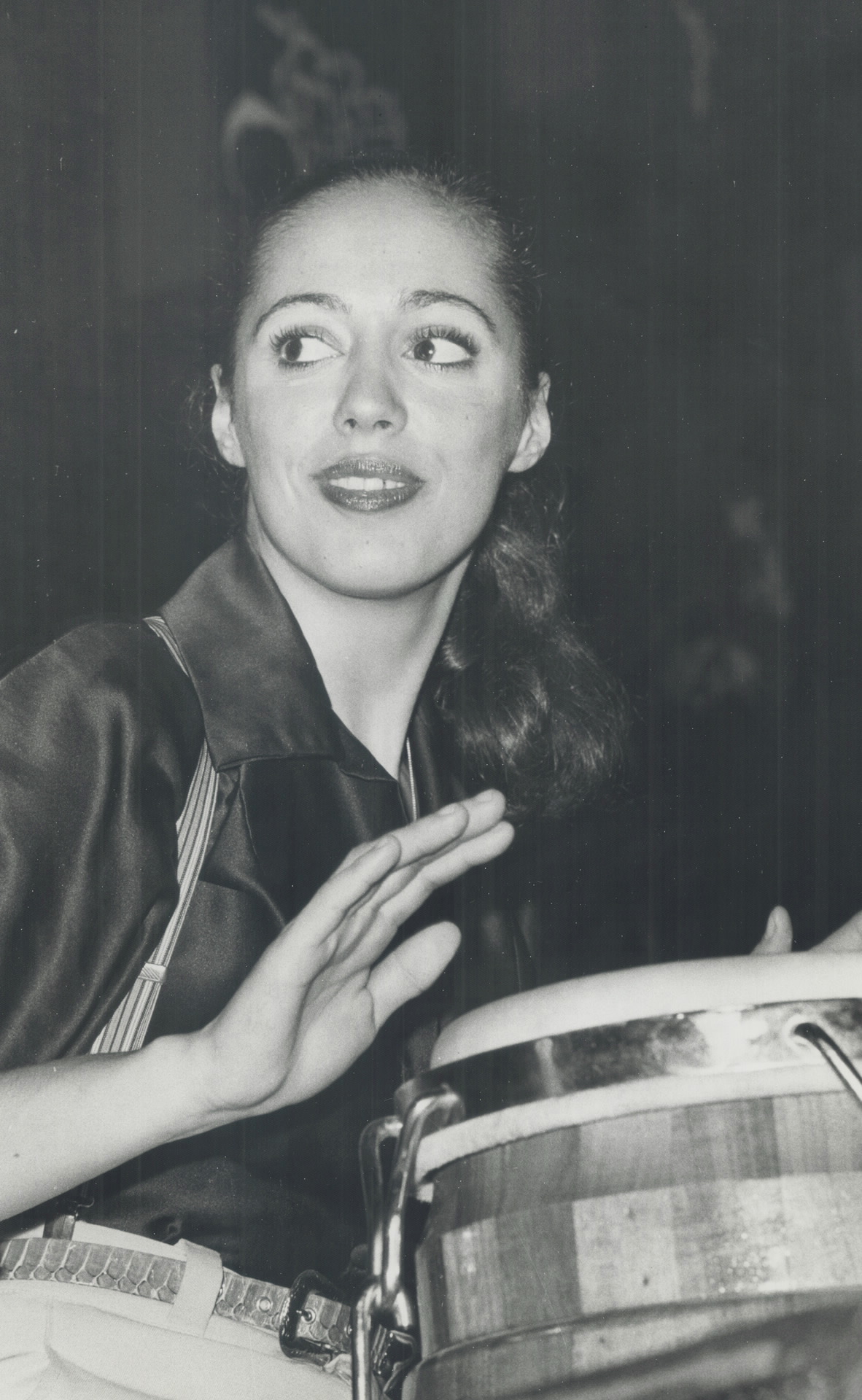In and around Toronto: the Penny Farthing in Yorkville was the first coffeehouse to host Joni Mitchell's original songs and featured a pool in the back. The band picture is of the Pleasure Seekers in 1968 at the Friars - from left: organist Arlene Quatro, lead singer Suzi Quatro (aka Leather Tuscadero), drummer Darline Arnone, bassist Pami Benford and lead guitarist Patti Quatro. The two men on stage are Bruce Cockburn and Eric Nagler at Mariposa Folk festival on Center Island in 1972; they collaborated on Bruce's second album High Winds White Sky. The Colonial Tavern on Yonge opened in 1947 (the second Toronto establishment to get a liquor license after the Silver Rail) and was finally demolished in 1987. The big crowd picture is from a free concert in High Park with lineup including Good Brothers and John Mills-Cockell. The Brown Derby tavern was open from 1949 to 1974, corner Yonge and Dundas.
Evangelical Coffee
The man pouring the (free) coffee at the Stepping Stone coffee house is George Leroy who owned and ran the shop on Avenue Road, just north of Yorkville Ave - it opened in 1969. Leroy was a Pentecostal minister who described himself and his volunteers as “pushers of Christ.” The Stepping Stone was an independent ministry, not affiliated with a church, and the primary purpose was evangelism. The coffee and baked goods were free.
The Stepping Stone was apparently the second evangelical coffee shop in Yorkville after The Fishnet which opened in 1966 below a fashion shop on Yorkville Ave. The Fishnet was a ministry of the nearby Avenue Road Church where Kenn Opperman was the senior pastor - he ran the Fishnet with volunteers from the College and Careers group at the church. The coffee and cookies were free.
Images courtesy of Toronto Public Library.
Christ and Counterculture: Churches, Clergy, and Hippies in Toronto’s Yorkville, 1965-1970
CNE
Brunswick House
A day in 1970 when they let the Salvation Army band play at the Brunswick Tavern. This was an establishment intended for drinking and smoking; upstairs was Albert's Hall if you wanted to see some excellent live blues.
Univac 1107
The UNIVAC 1107 was the first solid-state member of Sperry Univac's UNIVAC 1100 series of computers, introduced in October 1962. It was also known as the Thin-Film Computer because of its use of thin-film memory for its register storage. It was a single-address machine with up to 65,536 words of 36-bit core memory.
Only 36 were sold, one to the Metropolitan Toronto Traffic Signals department.
Folk Church
This picture was taken in Willowdale 1969 during the brief time folk music was hip with the congregation. Left to right: John Hermant, Bob Holden, Rev. Ed Buchheit, Cathy Lee and Neal Kearney.
Rochdale
Below are a few pictures of Rochdale college from the Toronto Public Library.
Singers
Leonard, Joni, Mick, Joan, Tim, Bobbie, James, Bonnie, Bruce, Petula, James, Alice.
Pictures courtesy of Toronto Public Library.
Another Perfect Day
Luke Gibson was lead singer of Luke and the Apostles (single: 'Been Burnt'), then joined Kensington Market (for 2 albums), then briefly revived Luke and the Apostles ('You Make Me High'), and then put out a country album in 1971, which was quite a departure from stuff he'd done up to then. It's an early True North records release - here is the track 'Full Moon Rider' from Another Perfect Day:
Take 5 147
Fastest recorded 147 break by Ronnie O'Sullivan - it's about as long as Take 5 by the Dave Brubeck quartet.
The Ernie Game
The band Kensington Market provided music for the 1967 movie The Ernie Game, produced by National Film Board. The clip below has Judith Gault and Alexis Kanner (who was later in the tv show The Prisoner):
Boris Spremo
Boris Spremo was the first Canadian photojournalist to win the Order of Canada. He worked for the Globe and Mail and his career finished at the Toronto Star.
Courtesy of Toronto Public Library.
Supremes
A couple of pictures because.
Thornhill Fire
The fire at Thornhill Country club in 1971 - this is the curling rink.
Toronto Bands
Below are some photos of Toronto based bands from the late 1960s and early 1970s and some related tracks from the era. First up, 3 characters from the Toronto music scene: Bill Graham, Bernie Fiedler, Bernie Finkelstein.
The original lineup of Three's A Crowd was Brent Titcombe, Donna Warner and Trevor Veitch - originally from Vancouver they moved to Toronto in 1966. Their first single was the above Bound To Fly. This is taken at the Riverboat in 1965:
Brent Titcombe, Donna Warner and Trevor Veitch.
These shots are from 1966:
The Stitch in Time was the resulting of merging an Amherst band The Continentals (Donnie Morris and Pinky Dauvin) with a Nova Scotia band The Untouchables (Bob Murphy, Grant Fullerton and John Yorke). They moved to Toronto and became The Stitch In Tyme and the first single in 1966 was Dry Your Eyes / Point Of View.
Bob Murphy, Donnie Morris, Grant Fullerton, Pinky Dauvin and John Yorke.
The Paupers in 1967 around the time of the release of their first LP (Magic People), when they were back from touring the US. At New York’s Cafe Au Go Go from February 21-March 5 they supported Jefferson Airplane and by accounts stole the show. They played Monterey Pop June 16 1967 and the combination of mechanical failures and a bad acid trip spelled their demise (no footage appears to have survived). Skip Prokop went on to co-found Lighthouse.
Denny Gerrard, Skip Prokop, Adam Mitchell and Chuck Beal.
Kensington Market in 1968 consisted of (left to right) Jimmy Watson, Gene Martynec, Luke Gibson, Keith McKie, Alex Darou, They put out two albums (Avenue Road and Aardvark) and by 1970 had disintegrated. The single "I Would Be The One" went to #59 in the 1968 top 100.
Kensington Market in Kensington Market.
This is Sugar Shoppe at the Friar's in 1967. The group was made up of Laurie Hood, Lee Harris, Peter Mann and Victor Garber.
Carole Pope: "I'd fantasized about dragging Sugar Shoppe into a back alley and slapping them around because they were so insipid. But Garber had an amazing voice."
Luke Gibson, when he was a solo act in 1969. He was a member of Luke and the Apostles (who opened for Jefferson Airplane and The Grateful Dead at Nathan Philips Square on July 23, 1967) as well as Kensington Market, after which he went solo.
Robbie Lane and the Disciples at the Friars in 1970. They started as Ronnie Hawkin's back up band, had a couple singles, and ended up as the band for Canadian CTV-TV's It's Happening.
Robbie Lane at the Friars.
Syrinx - John Mills-Cockell, Alan Wells, Doug Pingle and Malcolm Tomlinson in 1972. John Mills-Cockell was a member of Kensington Market (for their second album Aardvark) and a pioneer of the Moog synthesizer. Syrinx put out 2 albums (Syrinx and Long Lost Relatives). They were on of the first bands to use a synthesizer in live concerts; they opened for Miles Davis, played with Ravi Shankar and had a hit with Tillicum.
Images courtesy of the Toronto Digital Archives.
Suddon Collection
Here is part of the Suddon Collection of posters from the rare book collection on 5th floor of the Toronto Public Library - worth a visit.
Rough Trade
Images of Carol Pope and Rough Trade from 1975.
From left: Sharon Smiles, Carole Pope and Jane Cessine.
All images courtesy of Toronto Public Library.
Vancouver's Town Fool
Kim Foikis
The Fool
Joachim (Kim) Foikis was the official Town Fool of Vancouver.
On April Fool's day 1968 he received a $3,500.00 grant from the Canada Council to "to revive the ancient and time-honoured tradition" and so became Vancouver's Town Fool for one year. His aim was to “mock the four pillars of society: money, status, respectability, and conformity.”
In 1968 he visited Toronto City Hall:
He tried to get Toronto mayor William Dennison to wear the jester's hat and ended up getting kicked out. Foikis was apparently extremely skilled at his job.
The gathering out front of City Hall.
He visited again in 1969 for the Rochdale College annual Summer Festival - this is taken out front of the college:
On April 27 1969, he spent the last of his Canada Council grant on a party in Gastown for Skid Road residents.
He eventually lived in Rochdale College in 1974 and 1975.
He died in 2007 and the stories vary.
"I want to revive the fool of joy. I want all the world to be a stage - and get every other fool to laugh in the face of death."
Images courtesy of Toronto Public Library.



















































































